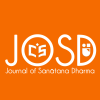What is knowledge if it is not examined? What is truth if it is not tested? The Indic traditions of logic (Nyāya), Tarka, and Mīmāṁsā, Vedānta, Bauddha, Jaina, and others do not treat learning as passive reception but as an active pursuit of truth through rigorous questioning. Unlike the Western dialectical approach that thrives on opposition and refutation, the Bhāratīya tradition seeks to refine, synthesize, and ultimately transcend intellectual divisions to reach the highest pramāṇa—valid knowledge. The educational frameworks of Sanātana Dharma, rooted in these systems of logic, are designed to nurture both the mind and spirit, creating not just scholars, but thinkers capable of deep introspection, debate, and transcendence.
Images
Indian Folklore, Folk Music and Folk Studies
Indian folklore and folk music are central to the cultural fabric of the subcontinent, serving as vehicles for storytelling, identity formation, and the transmission of knowledge across generations. Rooted in the oral traditions of various communities, these practices embody the lived experiences, social structures, and values of the people who create and preserve them. From mythological tales and heroic epics to devotional hymns and regional music traditions, Indian folklore and folk music are not just artistic expressions but also represent the collective wisdom, history, and philosophy of the diverse societies in India. The study of these elements, known as Folk Studies, is an interdisciplinary field that explores how folk narratives, songs, and traditions function in both traditional and contemporary contexts. Below are several important texts related to Indian folklore, folk music, and folk studies upon which research papers are invited:
Indian Knowledge Systems (IKS) & related domains
What is knowledge if it does not lead to the realization of the Self? What is truth if it is not lived? Indian Knowledge Systems (IKS) are not isolated disciplines—they are a vast, interconnected network of intellectual, spiritual, and experiential traditions that together weave the fabric of Sanātana Dharma. Unlike the fragmented and compartmentalized approach to knowledge seen in the West, IKS view knowledge as an integrated whole—where dharma, artha, kāma, and moksha form the four essential pillars of human existence, guiding individuals not only in their intellectual pursuits but in their ethical, emotional, and spiritual development.
